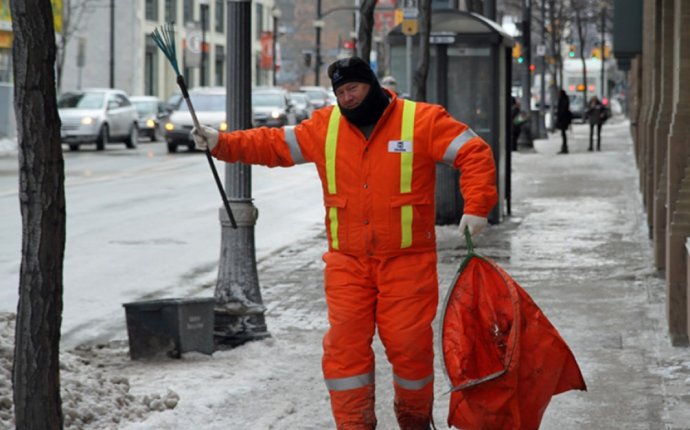
Garbage day Hamilton
Some public sector garbage collectors in Hamilton are working fewer hours than their private sector counterparts — but city officials say that’s just fine, because their routes are still getting finished and citizen complaint levels are low.
The performance of public workers in Hamilton’s garbage collection system was explained in an internal memo obtained by CBC Hamilton that was issued to city councillors and staff this week. The memo, authored by public works head Gerry Davis, was sent to councillors at their request to help manage the optics of a planned Hamilton Spectator story on garbage collection. It explains the practice and provides arguments to help them deal with any public fallout.
Questions about the practice are expected to be raised by councillors at council Wednesday afternoon.
The memo says that according to two key metrics, tonnes per household and cost per tonne, the city crews perform better than their private counterparts.
According to the memo, city trash collection shifts start at 6:30 a.m., when employees check in with their supervisors to get their assignments and check their equipment. They’re expected to start their route by 7 a.m. and get back to the yard to clean and secure their trucks by 1 p.m.
'It takes the public guys five hours to do what it takes the private guys eight.' - Coun. Sam MerullaIt notes that by working through breaks, the workers' finish times can vary significantly.
Some public employees are leaving hours before their shift ends at 2:30 p.m., Coun. Sam Merulla told CBC Hamilton, when asked about the memo. But he is not concerned about the practice. “That’s because in some cases they’re not taking their lunches or breaks so they’re working straight through, ” he said, which is an option that’s set out in the city’s collective bargaining agreement.
Other factors like route distance from the yard, transfer station wait times and weather conditions can influence when employees finish up, the memo reads. Volumes of waste can also vary during the time of year, with higher volumes of garbage recorded on curb pickups from April to November of the year.
"Variations in staff departure times is the norm in municipal curbside waste collection and reflects the many variables affecting the time required to complete work assignments, " reads the memo.
Putting in a full 8 hours
By contrast, private sector garbage collectors usually work a full eight hours. Merulla says he understands that having public employees leaving work earlier than private ones looks bad. “But we measure success in garbage collection through tonnage per household, not time, ” Merulla said. “It takes the public guys five hours to do what it takes the private guys eight.”
“Why would this be a negative story? I think it’s a positive.”
According to the city, public employees are picking up more garbage per household in less time. Public garbage collectors picked up 0.72 tonnes per household in 2012 while private workers picked up 0.70 tonnes per household. The city reports that in house garbage collection in 2012 was cheaper at $111 per household versus contracted services at $115 per household.
So if public sector employees are finishing work early, why not add to their workload? Merulla says that he would agree with lengthening some routes, but adds that the incentive to finish early is part of the “competitive environment” the city has created in splitting up garbage collection.
Gerry Davis, general manager of public works, told CBC Hamilton that the routes are structured in such a way that workers can meet daily commitments while still addressing the many variables that can come into play while on the road on any given day.
Complaints 'through the roof'
Garbage collection’s $14.4 million budget is split about 50/50 between public and private in the city. The public sector mostly deals with the lower city, while private contractors work on the Mountain and outlying areas. The split was created to make the two compete against each other, “and when I look at the data, clearly the public sector is outperforming the private, ” Merulla said.
Merulla also attests that there are fewer complaints on the public side of things. “If you look at complaints for the [privately collected] blue box, they’re through the roof, ” he said.
Hamilton has already weathered one scandal involving public works staff in the last year. The city fired 29 public works employees in 2013 after an investigation revealed some workers were getting paid for only a few hours of work and rumours swirled about the sale of asphalt out of the back of city trucks.
The memo also points out initiatives underway to improve the system and notes awards and recognition the city's waste system has received.









